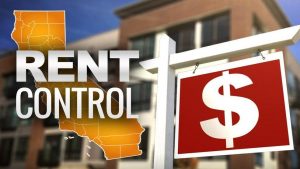 In October of this year, California Governor Gavin Newsom signed a rent control bill into law that will limit the amount and frequency that rental property owners and property managers can increase rent for certain rental properties throughout the state. Though many tenants’ rights groups have encouraged the new laws, others in the rental industry are less convinced that rent control will be the answer to high rent costs in the Golden State. Either way, navigating rent control laws while keeping real estate investments lucrative can be tricky. Experienced property managers like Martin Feinberg can help.
In October of this year, California Governor Gavin Newsom signed a rent control bill into law that will limit the amount and frequency that rental property owners and property managers can increase rent for certain rental properties throughout the state. Though many tenants’ rights groups have encouraged the new laws, others in the rental industry are less convinced that rent control will be the answer to high rent costs in the Golden State. Either way, navigating rent control laws while keeping real estate investments lucrative can be tricky. Experienced property managers like Martin Feinberg can help.
According to RealPage, “rent control refers to laws and ordinances that set artificial price controls on rent regardless of ownership, property profitability, or market demand.”
Housing demand in many places across the country is higher than the supply can meet. When this happens, rent prices typically increase. In California, housing demands have continued to outstripped supply for years. A strong economy and the creation of more jobs has led to a housing shortage in many areas, and rent prices have reflected that shortage.
Though the new rent control legislation—which limits rent increases to 5% each year plus inflation until Jan. 1, 2030—might cause some rental home owners to doubt their ability to turn a profit under such conditions, the new laws don’t apply to every rental property however.
The new rent control will not apply to housing built within the last 15 years, for example. It also won’t apply to single family homes unless they are owned by corporations or real estate investment trusts. Duplexes where the owner lives in one of the units are also not included. Finally, the new rent control laws do not apply to those who are living in areas that were already under some form of rent control.
For those rental properties that are impacted by the new laws, the biggest issue for professional property managers could be an impact on their owners’ abilities to turn a profit under such conditions.
Just because a property manager can’t raise rent doesn’t mean there are no perks, both for them and for owners, when forced to obey rent control laws. Some benefits might include:
- Low Turnover: Rent controlled units are often known for having low rates of tenant turnover. That means that Landlords should be able to save time and money on marketing and finding new tenants.
- Hardship Exceptions: In some cities landlords can apply for a hardship increase if the property manager cannot make a minimum profit for their investment. Such exceptions would likely require an attorney, and are not possible in every area, but if the property is losing money it could be an option.
- Property Conversions: In some rent controlled areas, property managers can charge higher rents for more features. Laundry rooms, studio conversions to one bedroom units, or converting two small apartments into one could allow for an increase in rental price. For instance, it might be possible to add a laundry room to justify a rental increase.
 Investment experts, tenants’ rights groups, and political officials will always debate the pros and cons of rent control. In the meantime, though property managers may need to get creative to maximize returns, solutions do exist for rental property owners concerned about their bottom line.
Investment experts, tenants’ rights groups, and political officials will always debate the pros and cons of rent control. In the meantime, though property managers may need to get creative to maximize returns, solutions do exist for rental property owners concerned about their bottom line.